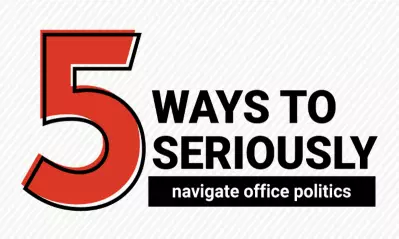What to know about neurodiversity at work

Written by Robert Strohmeyer

Reviewed by Jessica Roper, MBA,В director of Career Services at °ДГЕМмМмІКҝӘҪұјЗВј

Neurodiversity: A brief overview
Since the start of the 21st century, autism awareness efforts have led to greater general awareness of neurological differences among people. This, in turn, has cultivated a growing understanding of conditions such as attention-deficit/hyperactivity disorder (ADHD), autism and other neurological differences.
Understanding and diagnosing neurological differences in children can have a dramatic and positive impact on their ability to perform in school and can even improve social skills and extracurricular activities. Public school systems around the world now offer important programs to identify and address neurodiversity, with a variety of interventions and accommodations available to help kids learn more effectively.
Yet, despite decades of progress in the field of education, the professional world remains largely silent on the topic of neurodiversity. Diversity, equity and inclusion (DEI) efforts have grown substantially, but they tend to focus on gender, race and ethnicity, while programs to raise awareness of autism, ADHD and other forms of neurodiversity still lag. But understanding and embracing neurodiversity as a key type of human diversity is important and can have positive effects on companies and employees alike.В
What is neurodiversity?
It may or may not be obvious that weвҖҷre not all wired the same way. Even among supposedly neurotypical people, researchers are finding that differences in cognitive processes and perception abound. When we talk about neurodiversity, however, weвҖҷre talking about noticeable differences in cognitive functioning that can have a meaningful impact on the way people think, perceive and interact with the world вҖ” and which sometimes require accommodation.
вҖңWhen it comes to mental health, neurodiversity вҖҰ tends to be associated with specific conditions and reinforces this normative, neurotypical view for people who arenвҖҷt neurodivergent in that way,вҖқ neuroscientist Anil SethВ .
Through a large-scale study called theВ , Seth is working to demonstrate that we are all neurologically different from one another, and itвҖҷs just more noticeable in some people than others.
In practical terms, however, neurodiversity refers to people having known or unknown neurological differences that affect the way they live and work. ADHD, autism and dyslexia are well known types of neurological differences, but there are many others, and not everyone with a neurological condition has received a diagnosis.
вҖңProbably one of the most misunderstood things in a professional context about neurodiversity is that it is some form of a limitation,вҖқ saysВ Rodney Luster, PhD, senior director of Research Strategy, Innovation and Development at theВ College of Doctoral StudiesВ at °ДГЕМмМмІКҝӘҪұјЗВј. вҖңWhat weвҖҷre talking about is the socialization and de-stigmatization, both in unison, regarding what we might call вҖҳcerebral pluralismвҖҷ or the idea that we are all born with some varying differences and that we all experience things a bit differently.вҖқ
Embracing neurodiversity can surface our superpowers
One major opportunity researchers consistently point to is that understanding and embracing our neurological differences can help us unlock our latent intellectual potential.
вҖңMany employers and professionals may miss much of the potential in terms of a narrowly focused perspective that somehow neurodiversity is a limiting factor for a companyвҖҷs advantage in productivity,вҖқ Luster says.
On the contrary, people with neurological differences can sometimes be uniquely attuned to extraordinarily high performance in certain kinds of work. Supporting and accommodating peopleвҖҷs neurological needs can help people perform their best and do more outstanding, difference-making work.В
Making an effort to understand and accommodate neurodiversity not only helps ensure an inclusive workplace but can also enable a competitive advantage for the company. For individuals, the same applies: Getting a diagnosis for a possible neurological condition, making the effort to understand your own neurological needs and making accommodations for your personal neurological differences can help you perform your best at work.
Neurological differences often go undiagnosed, however. вҖңThere could be many within a population that are somewhere on the spectrum of autism who may not totally understand or even know it because they have not been formally diagnosed,вҖқ Luster says.
Moving beyond stigma to openness and inclusion
By current estimates, about 15% to 20% of the population may be considered neurodivergent, and that number has been increasing for decades. Most analysts believe the reason for the increase is simply that growing awareness and acceptance has led to more proactive diagnosis.
To make the most of employeesвҖҷ potential, companies may need to adjust the way they hire, evaluate and manage people. Some large, market-leading companies are already beginning to change their approaches to neurodiverse hiring and management.
вҖңIt begins with organizations that help develop better ecosystems around such issues,вҖқ Luster explains. вҖңCompanies can use things to hire differently, such as nontraditional, non-interview-based assessment and training processes, allowing and developing hangout sessions and project assessment trial periods that are a bit more extended for those who are neurodiverse. They can train managers and others on what to expect and tailor long-term career pathing.вҖқ
With greater awareness and understanding comes greater acceptance and inclusion. If your company hasnвҖҷt yet begun to focus on neurodiversity as an element of its DEI programs, you could do a number of things to facilitate it, either as a leader or as an employee.
The first, of course, is to talk about it. Employees and managers at every level should advocate for neurodiversity, even if they donвҖҷt feel theyвҖҷre personally neurodivergent (and remember, weвҖҷre all a little different).
Managers should make an effort to recognize and appreciate neurodiversity within their teams and promote a working environment in which peopleвҖҷs differences are respected and their needs accommodated.
вҖңMore conversations in one-on-ones can also be helpful around these topics which are geared really toward the promotion of talent within the person and utilizing the great things that they bring with them,вҖқ says Luster.
Ultimately, what makes us different from one another is part of what makes our teams and organizations stronger. Diversity is a strength, and by playing to one anotherвҖҷs strengths in the workplace, we make our teams stronger and allow individuals to perform better.
Jamie Johnson, MS, NCC, CCC, is aВ career coach at UOPXВ who recommends the following tips for optimizing productivity in a neurodivergent workforce.
Tips for managers
1. Provide a safe, confidential and welcoming work environment that allows neurodivergent employees to feel comfortable communicating their specific needs.
2. Go beyond legal compliance to consider customized work options that will give each neurodivergent employee the best opportunity to thrive. For example, when working in the office, consider setting up a space for those who need to disconnect from all the sensory experiences so they can decompress and recharge before returning to work. Or consider work-from-home days or a hybrid schedule.
3. Provide a variety of communication options, from email to in-person meetings. Make sure all styles of communication are provided with enough time to reflect, read and comprehend.
4. Work with your IT department to seek new and creative technology options that will improve communication and increase participation and work efficiency for everyone.
Tips for neurodivergent employees
1.В Communicate with your manager and colleaguesВ the best types of accommodations for you, whether thatвҖҷs how you communicate, how you recharge or how you leverage technology, work tools or resources to optimize productivity.
2.В Set up a routineВ that positions you to be as productive as possible and then let your manager and colleagues know about it. If you prefer to have morning meetings or a do-not-disturb lunch, for example, you can better stick to what works if your team supports it.В
3.В Be patient with yourself and others. Seek to understand their perspective. For example, if the situation is too intense and you canвҖҷt handle dealing with large amounts of noise, excuse yourself and go to your designated quiet place in order to regenerate and work more efficiently. Allow those whom you feel safe with to get to know you personally in order to build better workplace relationships.
4. Choose to be the best employee you can be andВ find new ways to growВ professionally. Add new tools or training that enhances your skills and value. Also, be willing to be an advocate and help build communication bridges within your workplace and your personal neurodivergent framework.
Accessibility at °ДГЕМмМмІКҝӘҪұјЗВј
UOPX recognizes learners of all abilities and supports different types of learners in its skills-aligned degree programs.
Students who would benefit from accessibility accommodations (due to temporary or permanent medical conditions, learning disability or other diagnoses) can contact the Student Accommodation Office to discuss their individual situation as well as reasonable accommodations that can help ensure they have an equal opportunity to learn and demonstrate what theyвҖҷve learned.
вҖңA diagnosis doesnвҖҷt mean that a student canвҖҷt pursue and earn a college degree,вҖқ explains Kelly Hermann, vice president of Accessibility, Equity and Inclusion at UOPX. вҖңThey just might have to approach it a little differently along the way.вҖқ
UOPX also offers the following resources to all students:
- Math tutoring: Refresh and update your mathematical skills to prepare for college-level courses.
- Writing assistance: Enjoy on-demand access to guides, templates and resources to polish your grammar skills and improve your writing skills.

ABOUT THE AUTHOR
Robert Strohmeyer is a serial entrepreneur and executive with more than 30 years of experience starting and running companies. He has served in leadership roles at three successful software startups over the past decade, and his writing on business and technology has appeared in such publications as Wired, PCWorld, Forbes, Executive Travel, Smart Business, Businessweek and many others. He lives in the San Francisco Bay Area.

ABOUT THE REVIEWER
Jessica Roper, °ДГЕМмМмІКҝӘҪұјЗВј director of Career Services, is a seasoned leader with over 15 years of experience in leadership within higher education. She has honed her expertise in student services and career development and is passionate about helping others discover and refine their skills.
This article has been vetted by °ДГЕМмМмІКҝӘҪұјЗВј's editorial advisory committee.В
Read more about our editorial process.
Read more articles like this:


